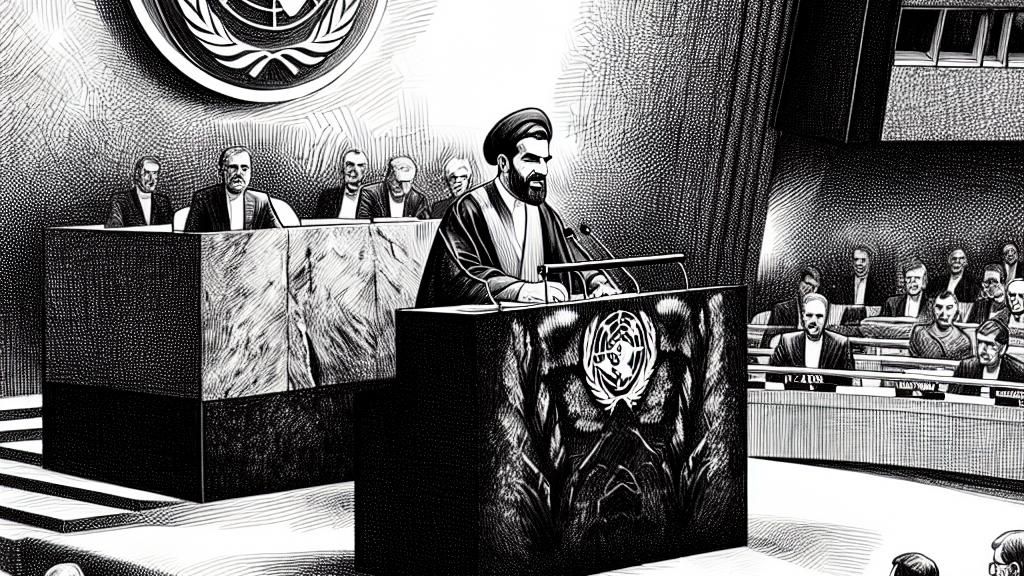Tehran's Commitment to Dialogue: President Pezeshkian Addresses Nuclear Standoff
Overview
- Iran's readiness to re-engage in nuclear discussions signals a potential thaw in tense international relations.
- President Pezeshkian passionately advocates for global peace while condemning Israel's military actions in Gaza.
- Amid rising tensions, the U.S. prepares for strategic responses to heightened threats from Iranian-backed militants.

The Setting: A Historic UN Address
During a pivotal moment at the United Nations General Assembly in New York, Iranian President Masoud Pezeshkian delivered a compelling message to world leaders. He emphasized Tehran's keen interest in re-engaging with global powers regarding the 2015 nuclear deal, stating, 'We seek peace for all and have no intention of conflict with any country.' This declaration represents not just a call for dialogue but reflects a deeply rooted desire to mitigate the crippling U.S. sanctions that have severely impacted Iran's economy. Pezeshkian’s remarks resonate widely, especially given the current geopolitical climate reminiscent of the Cold War, where every misstep could spiral into larger conflicts.
Historical Context: A Tense Backdrop
To understand Pezeshkian's approach, it's crucial to consider the historical context. The 2015 nuclear agreement, once a beacon of hope for diplomacy, was abruptly abandoned by then-President Donald Trump in 2018. Since then, the re-imposition of harsh sanctions has isolated Iran, creating an environment ripe for discontent. However, Pezeshkian's call for renewed diplomacy not only seeks to restore the nuclear pact but also aims to address regional instability, notably through a criticism of Israel's operations in Gaza. He demanded an immediate ceasefire, linking Iran's geopolitical aspirations with the fight against perceived injustices, thus broadening the dialogue to encapsulate humanitarian concerns amidst strategic interests.
Rising Risks: A Volatile Landscape
As both the U.S. and Iran profess their lack of interest in warfare, the undercurrents of rising tensions may provoke unintended conflicts. Following a devastating drone strike attributed to Iranian-backed militants that resulted in the deaths of three American soldiers in Jordan, President Biden faces a critical crossroads in determining how to respond effectively without escalating further tensions. The intricate web of alliances and hostilities, illustrated by ongoing missile exchanges between Hezbollah and Israel, raises the specter of a broader regional conflict, akin to the devastating wars of the past. This precarious balance highlights the pressing need for diplomatic engagement; a misinterpretation of actions or intentions may lead to dire consequences. Ultimately, the stakes have never been higher, and the path to peace demands urgency and thoughtful negotiation.

Loading...